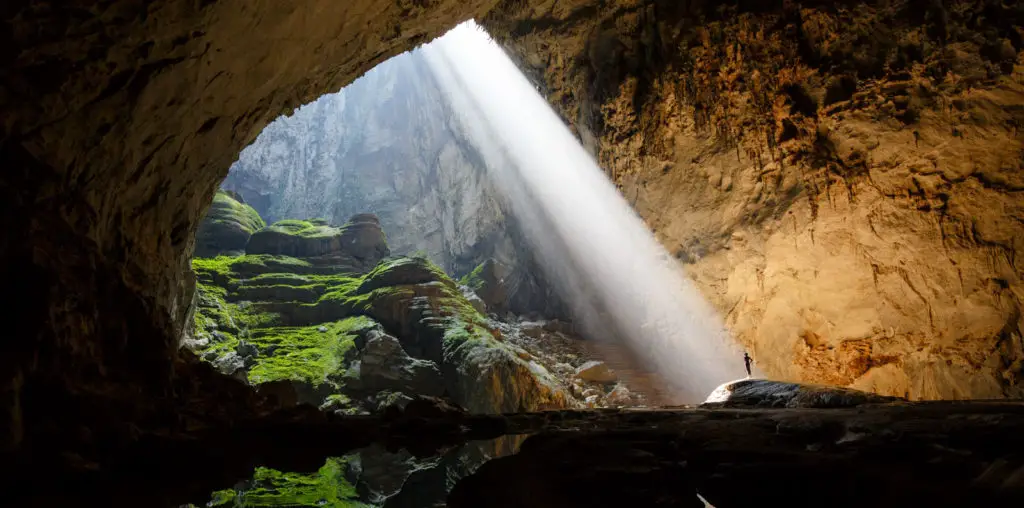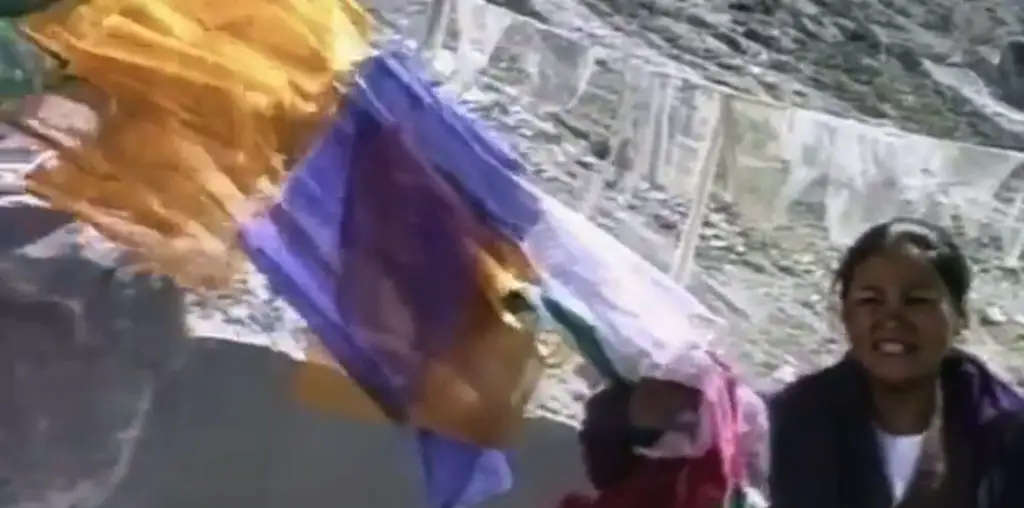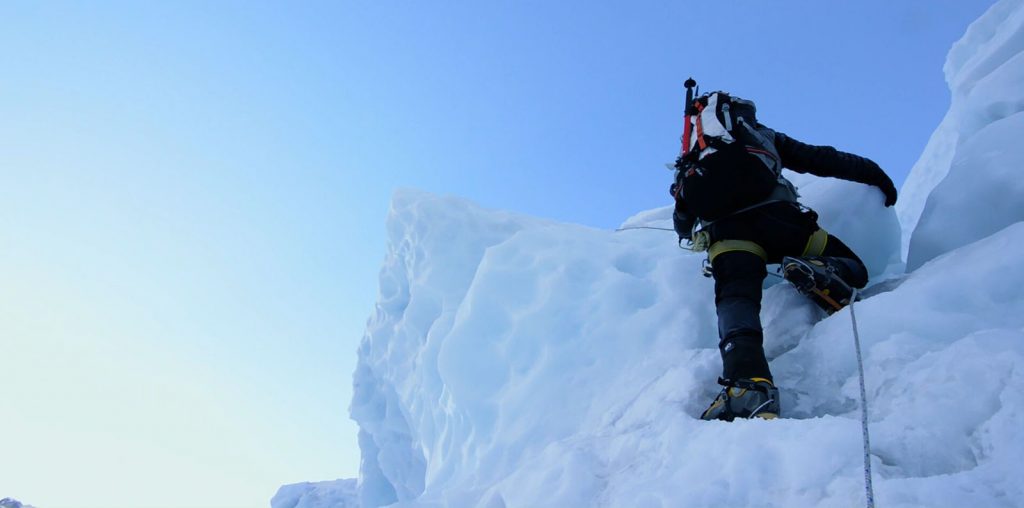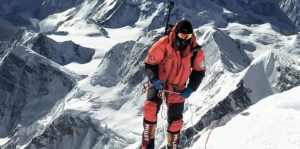
Harz is a motivational speaker, and he sounds like one. Despite his attempts to present himself like Bourdain or Grylls, Harz still comes across as a bit forced and unctuous. It’s a minor irritation, but it would have been fun to see him have one grumpy morning. On the other hand, much respect is due as the filmmaker focuses on the Nepalese and the Sherpas in particular. It gives his documentary an authenticity beyond being purely an adventure or athletic endeavor, though it is most assuredly both of those. Harz’s love and respect for the culture of the region are critical.
That Harz steered The Quest: Nepal toward Nepalese culture allows him to mostly avoid the elephant in the room. Let’s face it, enough rich Westerners (primarily White people) have climbed Everest at this point that, while still an incredibly arduous and dangerous challenge, it has been decades since anyone equaled the achievements of Hillary and Norgay when reaching the summit. Professional teams of mountaineers and local Sherpas organize the trip, monitor the weather and mountain conditions, choose the best paths, train the climbers, and watch after them. Helicopters stand by to extract injured climbers. In 2019 the New York Times featured a Sherpa’s photo of a traffic jam showing dozens of people waiting in a crowded line to take the summit. It has become a bit cheap and touristy.
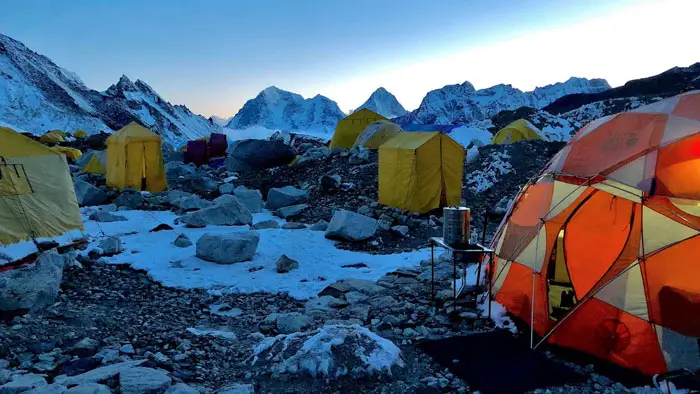
“Harz’s love and respect for the culture of the region are critical.”
Still, a certain percentage of people who make the attempt perish. So many, in fact, that Harz includes a trip to the base camp graveyard with memorials to those who’ve died on the mountain. The climbers visit it as part of their prep to pay respects and remind them that through bad luck, poor preparation, or simply human frailty, they could die in this enterprise. The worst part of the death toll is that about a third of the people killed have been Sherpas over time. One deadly incident killed sixteen Sherpas. Sherpas also risk their lives each year in an expedition to clean up the detritus left on the mountain by tourists.
It’s tempting to suggest that the deaths of people working for wealthy outsiders who come to indulge themselves in the challenge are unacceptable and that sport expeditions should stop. However, the problem with that position is that the tourist industry around climbing has become a critical income generator for the region. It’s a hard thing to consider, with no easy answers. This makes it all the more important that Harz includes the story of his guide, Tashi Sherpa, in The Quest: Nepal. To that end, Tashi Sherpa is shown beside the filmmaker at the summit, looking out over the top of the world.
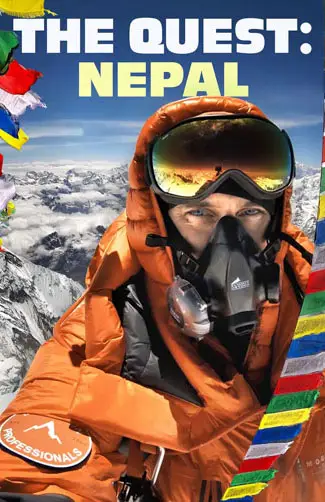
"…breathtaking and beautifully shot."
